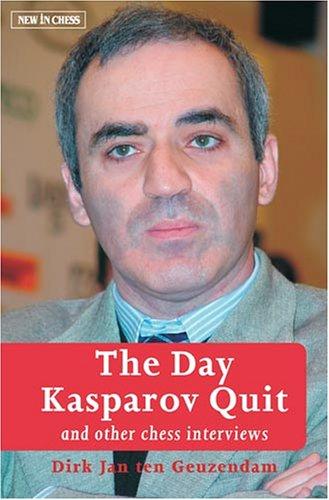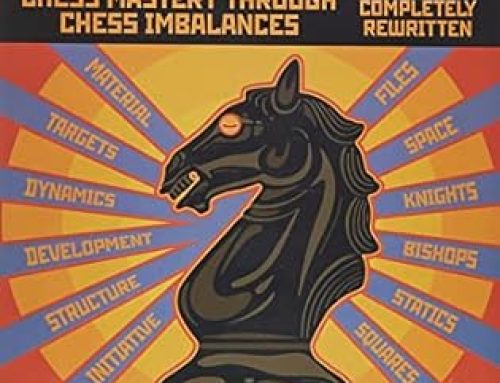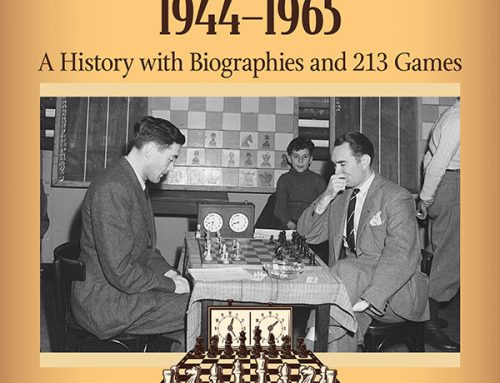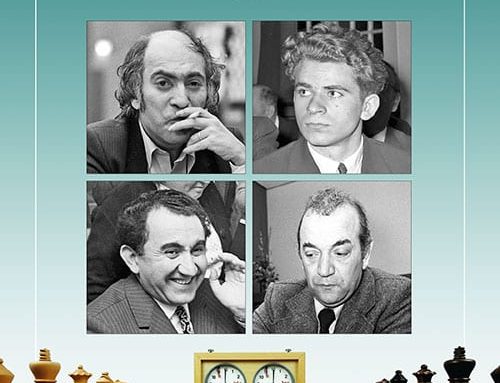Smart Chip from St. Petersburg and other tales of a bygone chess era by Genna Sosonko was published by New In Chess in 2006. This book contains character portraits of some quite strong, but lesser-known names like Irina Levitina and Jan Donner, and some even less familiar characters, such as Genrikh Chepukaitis. There are also articles on how age affects chess, the killer instinct, chess in dreams, and religion and chess.
The format for the thematic articles is similar throughout the book. Sosonko draws strongly on the experiences of his compatriots in both the Netherlands and the former Soviet Union, his own experience, and occasionally that of other grandmasters. The character portraits are of people Sosonko has known, at least in passing, but often quite well. This enables him to present relatively detailed stories of their relationship to chess and provide a very personable account of the subject.
the chapter on Levitina, she says, “It’s fantastic that you (Sosonko) find the good side in very unappealing people.â€� (p.150) She is referring to Sosonko’s previous book, Russian Silhouettes, but this ability seems to continue within this book as well. While the author shouldn’t be accused of writing hagiographies, he is clearly focusing on the good side of his subjects. Even when exploring an individual’s negative traits or difficulties they may have caused, he does so in a sympathetic manner.
The work flows nicely and is very easy to read. There are wonderfully humorous sections, such as when Sosonko explains what it is like to be very slightly famous. The short, succinct chapters make the book ideal to read where frequent interruptions are likely. The only component of Sosonko’s writing that one might find distracting to read is his frequent switching from first to third person and back again.
The best part of Sosonko’s work is the “everyman� feel that he brings to each character portrait. This reviewer, and most of the readers, will never have met any of the people they are reading about, but rather, will be reminded of people they know from their own life. We may not have known Chepukaitis, but we all know someone who is far better at blitz than slow chess; we may not have known Evgeny Ruban, but we all know someone who found life difficult to handle and found solace in this immortal game.
My only real complaint is that most of the articles, all but ‘Genna Adonis’ and “The Stairway of Life,’ are reprints from New In Chess Magazine. To be fair, the publishers do relay this information on the bottom of the next to last page, and it is nice to have the articles all together, but regular readers of New In Chess might not want to spend $24.95 on a book they have already read. For those who are not regular readers of New In Chess magazine, $24.95 is a steal.





